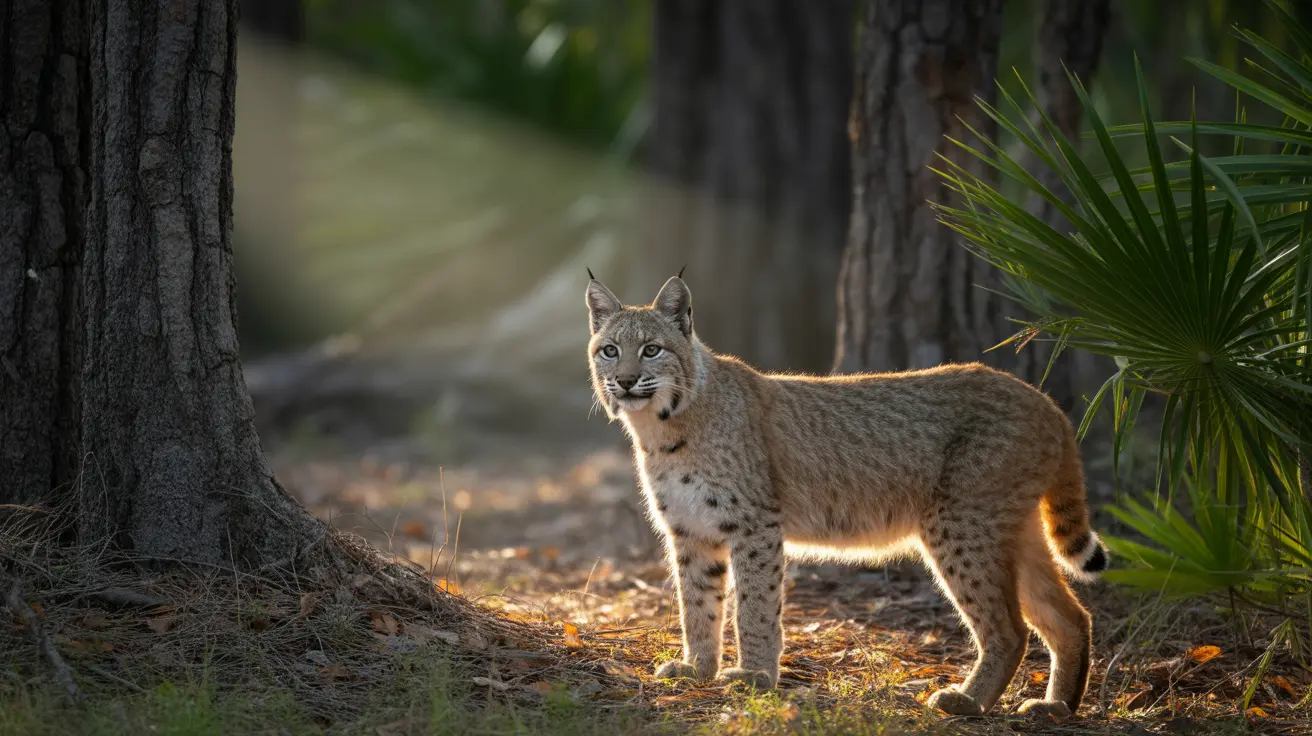Les propriétaires d’animaux et les habitants de la région du Central Savannah River Area (CSRA) sont invités à faire preuve d’une vigilance accrue suite à la découverte d’animaux enragés dans deux comtés. Les autorités locales ont confirmé des incidents distincts impliquant un lynx roux et une chauve-souris atteints de la rage, soulignant ainsi la présence continue de la rage dans la faune sauvage du CSRA.
Selon les responsables, un résident du comté de Burke a signalé une rencontre avec un lynx roux suspect le 1er octobre, lorsque l’animal est apparu sur sa véranda en présentant un comportement inhabituel. Cet incident a conduit les autorités à émettre une alerte rage faune sauvage pour la région.
Signes de rage chez les animaux
Les découvertes récentes soulignent l’importance de savoir comment reconnaître la rage animal dans la faune sauvage. Les animaux enragés peuvent présenter :
- Une agressivité inhabituelle ou une léthargie extrême
- Une perte de peur envers les humains
- Une salivation excessive ou une mousse à la bouche (symptômes rage chez le chat et autres espèces)
- Des mouvements erratiques ou désorientés
- Une activité durant des heures inhabituelles, surtout pour les animaux nocturnes
Transmission de la rage par les animaux sauvages
Le virus se propage principalement par morsures, griffures, ou contact avec la salive d’un animal infecté. Les lynx roux et les chauves-souris sont des animaux vecteurs rage France bien connus, avec d’autres espèces sauvages courantes dans la région CSRA également porteuses du virus.
Vaccination antirabique obligatoire en France et dans la région CSRA
Il est essentiel que les propriétaires d’animaux dans la région CSRA s’assurent que leurs animaux bénéficient d’une vaccination antirabique obligatoire France à jour. Les lois des États de Géorgie et de Caroline du Sud requièrent :
- Des vaccinations régulières contre la rage pour les chiens et les chats (réglementation vaccination animaux rage)
- Une preuve de vaccination à jour
- La déclaration rapide d’une exposition potentielle à la rage
Prévention de la transmission de la rage
Pour se protéger, ainsi que ses animaux, contre une possible exposition à la rage, il est conseillé de :
- Veiller à la mise à jour des vaccins de vos animaux (surveillance vétérinaire rage)
- Ne pas laisser vos animaux divaguer sans surveillance
- Éviter tout contact avec des animaux sauvages ou inconnus (contact rage animaux sauvages)
- Sécuriser les poubelles extérieures pour ne pas attirer la faune sauvage
- Obstruer les points d’entrée susceptibles de laisser pénétrer les chauves-souris dans votre domicile
Traitement en cas d’exposition postérieure à une morsure suspecte
En cas d’exposition suspectée à la rage, il est impératif de consulter immédiatement un professionnel de santé. Le traitement morsure suspecte rage inclut une évaluation rapide pour instaurer une prophylaxie post-exposition rage selon la nature et les circonstances de l’exposition.
Questions Fréquentes
Quels sont les signes de la rage chez un animal ?
Les signes incluent agressivité inhabituelle, désorientation, salivation excessive et un comportement anormal, comme une activité à des heures inhabituelles. Ces signes de rage chez le chien et autres animaux doivent inciter à la prudence. Ne jamais approcher un animal sauvage montrant ces symptômes et prévenir immédiatement les services compétents.
La rage existe-t-elle encore en France ?
La France est officiellement indemne de rage, mis à part des cas ponctuels importés ou très rares liés aux chauves-souris (épidémiologie rage en France). Néanmoins, la vigilance reste de mise pour éviter toute réintroduction.
Quels animaux sont les principaux vecteurs de la rage ?
Les chiens, les chats et les chauves-souris sont les principaux vecteurs du virus, avec un risque accru lors de déplacements à l’étranger. Les autorités recommandent une gestion animaux mordeurs France stricte pour contrôler ce risque.
Comment se transmet le virus de la rage ?
La transmission se fait principalement par morsure, griffure ou contact avec la salive d’un animal infecté. Le comportement animal enragé et la salivation excessive sont des signes d’alerte pour éviter tout contact dangereux.
Que faire après une morsure suspecte de rage ?
Il est crucial de laver immédiatement la plaie au savon et de consulter un centre antirabique sans délai. Suivez la conduite à tenir exposition rage pour instaurer un traitement adapté rapidement.
La vaccination des animaux contre la rage est-elle obligatoire ?
Oui, la vaccination antirabique obligatoire France s’applique à certains animaux domestiques, en particulier chiens et chats. Consultez votre vétérinaire pour connaître le protocoles rage animaux domestiques à respecter, en fonction de l’âge et des antécédents vaccinaux de votre animal.
Un animal sauvage observé avec des signes suspects, que faire ?
Ne jamais approcher l’animal et prévenir immédiatement les autorités ou vétérinaires compétents, conformément aux mesures sanitaires rage France en vigueur.
Quels traitements existent après une exposition à la rage ?
La prophylaxie post-exposition inclut la vaccination et éventuellement des immunoglobulines, suivant un protocole médical précis. Ce traitement morsure suspecte rage est essentiel pour prévenir la maladie.
Comment voyager avec un animal sans risque de rage ?
Avant tout déplacement, assurez-vous que votre animal est vacciné, identifié et dispose d’un passeport à jour afin de limiter les risques liés à la rage (conseils prévention rage voyageurs).
Pourquoi la rage est-elle toujours surveillée en France ?
Le risque d’introduction via des animaux importés subsiste, nécessitant une vigilance constante et des campagnes d’information renouvelées. Le rôle vétérinaire contrôle rage est capital dans cette stratégie de prévention.
Les récents cas de rage dans la région CSRA rappellent aux propriétaires d’animaux l’importance de rester vigilants et de garantir la protection de leurs animaux par une vaccination appropriée. En s’informant et en adoptant des mesures préventives, les résidents contribuent à une communauté plus sûre, pour les animaux comme pour les humains.
N’oubliez pas de signaler tout comportement suspect d’animaux sauvages aux services locaux de contrôle animalier et de garder sous la main les numéros d’urgence. Votre attention à ces mesures de sécurité peut faire une différence essentielle pour prévenir l’exposition à la rage dans la région CSRA.






